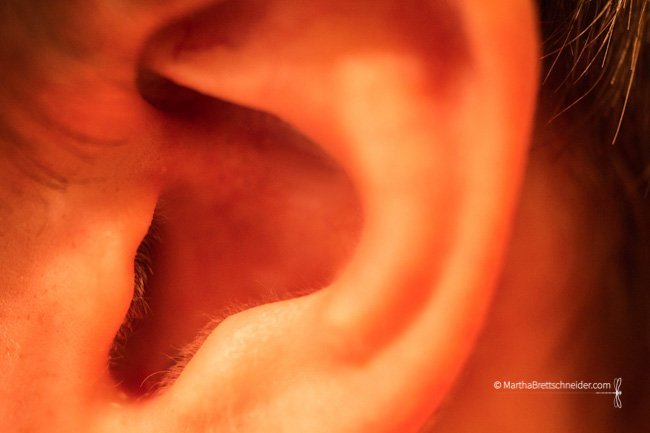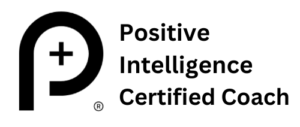
Have you ever taken a good hard look at your listening skills?
I’ve been giving this a lot of thought over the past few months. It started when I was answering questions after a book talk and a lovely woman in the audience mentioned that Blooming into Mindfulness resonated deeply with her because she was diagnosed with a rare form of cancer six years ago and was given just a few weeks to live. But here she was six years later, looking radiant and healthy. Her garden and mindfulness helped her weather that dark period of her life, as had been the case with me.
The only thing I focused on in her comment was the cancer, garden, and mindfulness connection. In other words, I only looked for myself in her remarks, and what interesting reply I could give that would bring the conversation back to me.
As I was packing up after the talk, I realized what I had done. This woman had an incredible personal story to share and I had done nothing to draw her out more. Her lessons would have enriched the whole audience.
I literally felt sick to my stomach. It gnawed at me all day and overnight. In the car the next day I was so overcome with guilty thoughts that I turned on the radio to drown out the bullying “you’re a loser” voice in my head.
Message from the Universe: “Yes, You’re a Crappy Listener!”
The TED Radio Hour was playing on NPR when I turned on the radio to escape from my own thinking. The topic? “Five Ways to Listen Better,” presented by sound expert Julian Treasure.
I laughed right out loud, as I usually do when the cosmic message is that crystal clear.
Treasure described how we’re losing our listening skills as our attention spans decline further and further in the information age. He then shared strategies to “re-tune your ears for conscious listening.”
Conscious listening creates understanding, Treasure says. But for most of us, it’s hard to pay attention to the quiet, the subtle, and the understated. (I’ll come back to his training strategies a little later.) Most of us can’t even pay real attention to a straightforward conversation with another person.
Think about it…
When another person is talking, what’s going on in your head?
Usually we’re too busy thinking up our own witty response, or how the other person’s situation is just like our situation, or how we will disprove what the other person is saying. We’re so preoccupied with what our reply will be that we don’t truly listen to the other person in an open, curious, and nonjudgmental way.
We don’t listen as if we care about learning what makes the other person tick.
So yes, as my book talk example illustrates, I am a crappy listener. Got the message, Universe! Thank you!
Another Listening Expert Sent My Way
Since that experience I’ve tried to pay more attention to my listening habits. So my ears perked up last week at our Organizational Wellbeing event when my workshop partner Friderike Butler of Butler Communication explained the 3 Levels of Listening:
Level 1 – you are listening with a ‘what’s in it for me’ mindset. You are listening for an opening to insert your own story.
Level 2 – you are listening to relate to the other person. The conversation plays like a friendly game of tennis with the intent of the partner being able to play the ball back to you. You ask questions and share enriching stories.
Level 3 – you are listening for deep discovery. Your whole focus is on learning more about the story, the motivation, and the values of the other person. You ask open-ended questions that come from a place of authentic curiosity. It is all about the other person’s story. Often this level of listening and engagement allows the other person to learn something about themselves.
Friderike invited us all to imagine what progress we could make in bridging our current societal divides if we all honed our Level 2 and—dare I say—Level 3 listening skills. It’s a challenge I plan to personally take on!
Julian Treasure’s 5 Strategies to Train Your Listening Skills
Coming back to the conscious listening skill-building that Julian Treasure presented in his TED Talk, here are some practical exercises to retune your ears to the subtle sounds in your midst (my personal favorite, of course, is a daily meditation practice!).
- Silence. 3 minutes a day of silence is a great exercise to reset your ears and calibrate so that you can hear quiet again.
- The mixer. In a sound-filled environment, see how many channels of sound you can distinguish (in a coffee shop, at a stream, anywhere where multiple sources of sound are present). This is a great exercise to improve the quality of your listening.
- Savoring. Pay attention to mundane sounds (what Treasure calls “the hidden choir”). The sound of the drier, the sound of the coffee grinder, or the sound of the central air system in your house if you’re lucky enough to have that.
- Play around with your listening positions: active/passive, reductive/expansive, critical/empathetic. Get conscious and move to different positions. These are just some of them.
- RASA (Sanskrit word for “juice”): Receive, Appreciate, Summarize, Ask
Treasure reminds us that every human being needs to listen consciously in order to live fully, connected in space and in time to the physical world around us, connected in understanding to each other, not to mention spiritually connected. If we could teach this in the schools, he argues, we could transform to a world of connection, understanding, and peace. You can watch his full TED Talk here.
Happy Ending With the Lady at My Book Talk
Circling back to the book talk that sparked all of this contemplation about conscious listening, I took my own advice to take action where I could and let go of the rest. I tracked down that lovely woman and invited her to coffee. I encouraged her to tell me her story, which is nothing short of miraculous. Today we are friends and meet regularly to share our mindfulness journeys with one another. I couldn’t be more grateful for her presence in my life and the many lessons I’ve learned from her.
***
If you enjoyed today’s post and are not yet a subscriber, please join my Readers Circle via the sign-up box in the right margin and receive my free ebook Six Playfully Mindful Strategies to Beat Procrastination and Boost Productivity. You’ll also receive updates on my book Blooming into Mindfulness, weekly blog posts, and photography, speaking engagement, and workshop news. Email is much more reliable than social media in getting information to you in a timely fashion, so sign up to make sure you’re in the loop! (I promise not to share your address or send you spam.)
And if you know someone else who might benefit from an extra dose of calm in their lives, please spread the word! Social media likes and shares are always appreciated.
Finally, if you find typos anywhere on my site, I’d be grateful if you let me know. I hate typos!Contact me so that I can correct the error. Thank you!


